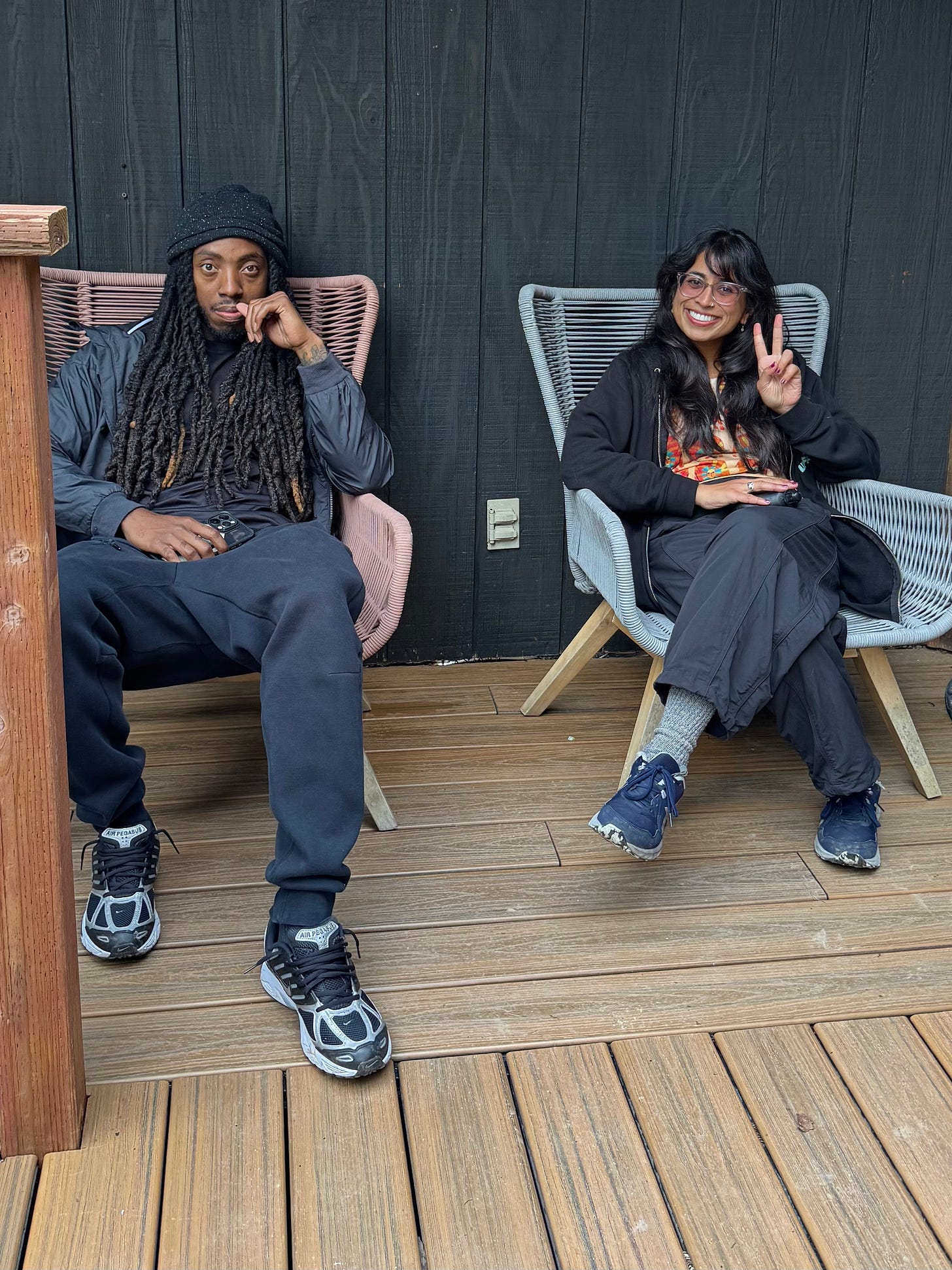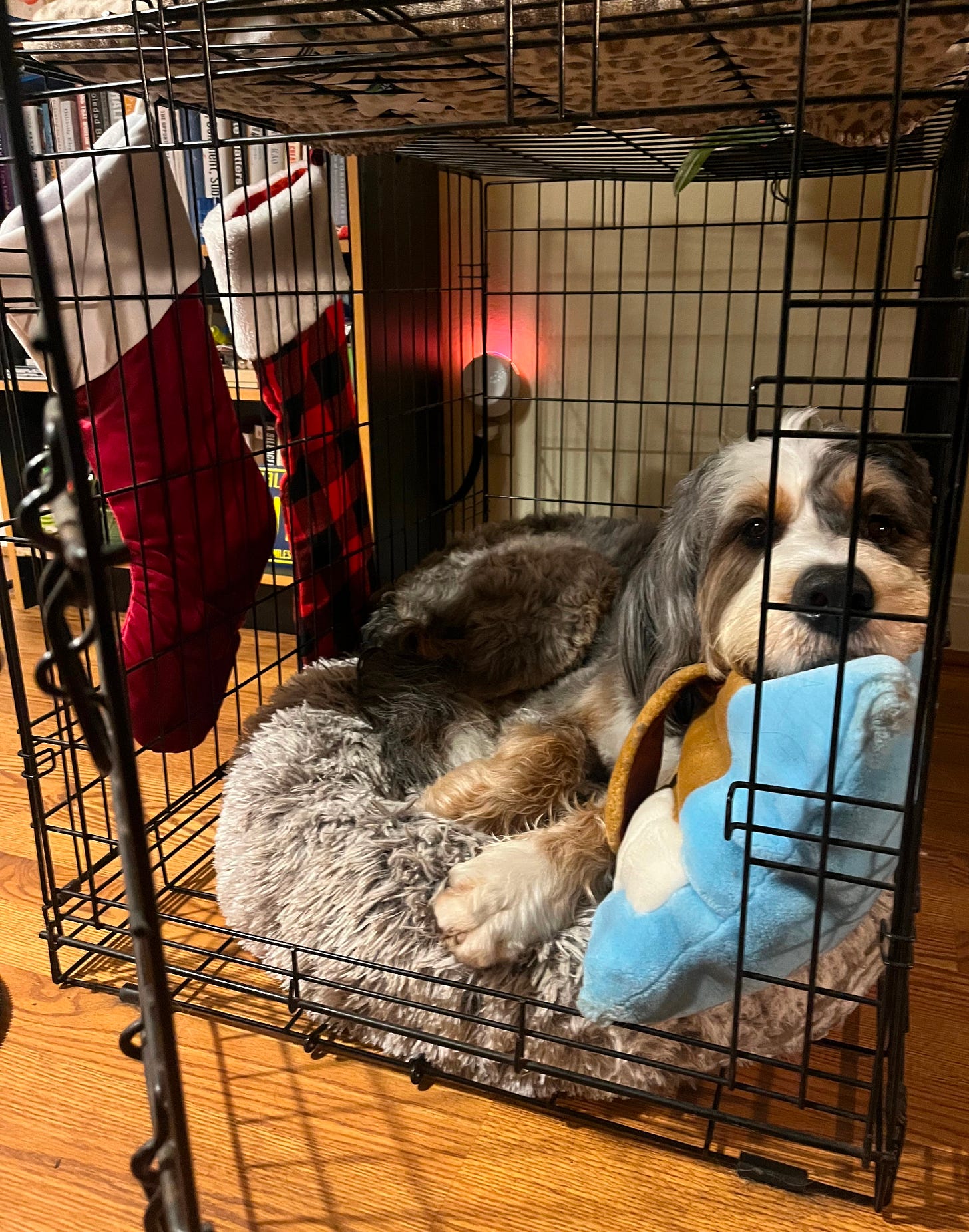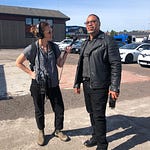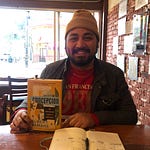Hello, everyone,
If you consume podcasts or make podcasts, you’d be hard-pressed to admit that video podcasts are now a thing. As someone who never wanted to be in front of the camera but appreciates learning new skills and staying current, I decided to suck it up and give it a try. Will Loitering continue as a video podcast from now on? Maybe, maybe not. Video podcasts don’t lend themselves easily to documentary or narrative shows, but Loitering has, for the most part, been an interview podcast. Since YouTube is now the most popular platform for listening to podcasts, and short-form video (including snippets from podcasts!), dominates our feeds these days, I figure one should at least experiment and try this out.
That motto is pretty fitting for my latest interview for Loitering. I spoke with Evan Ratliff, an acclaimed journalist who’s had a long career experimenting and trying many things out… including, most recently, creating and hosting a podcast where he created AI voice agents by cloning his own voice. The first season of the podcast, Shell Game, tracks what happened after he unleashed these clones on his friends, family and therapist. (You can hear a condensed version of that entire season on This American Life.) The second season just started releasing new episodes last week.
Even before I knew the new season was launching, though, I was curious to talk to Evan. I’ve been spending some time at the U.C. Berkeley J-School this fall, creating intentional space for myself to focus on the craft of reporting and writing… and, to scope out and consider how we’re teaching journalism to newbie, would-be journalists. It’s hard to remember how much you do know when every other journalist, including myself, will openly admit that journalism is a tough industry. So I wanted to talk to Evan precisely because he’s been an entrepreneurial journalist, and there’s a lot I think we can all learn from that.
It’s been a while since I edited video, and I ended up using Riverside (which I used to record the interview) to edit it as well. So I will acknowledge that some of these edits aren’t as smooth or polished as I’d like them to be. A couple of the captions were also impossible to correct on Riverside, so that was annoying. That aside, let me know what you think of the interview! And if you think others would be interested in it, please share.
While the state of the world has made it hard to feel celebratory this year, I am also proud to share that Uncuffed released a monumental season of its podcast. In addition to featuring stories produced inside of prison (including, for the first time on our show, stories from a women’s prison), my colleague Greg Eskridge, who hosted this latest season, shared his own story of what it’s been like to re-enter society after decades away. Season 4 followed that story from the day he left San Quentin to nearly a year later, as he reflected with filmmaker Thanh Tran (an Uncuffed alum) and Ear Hustle co-founder Earlonne Woods about what it’s been like to taste this freedom, knowing your friends are still inside prison.
Part of what made this season so monumental is that it showcased how Uncuffed’s training model can pave the way for incarcerated people to do this work “on the outside,” as we say. Greg, who’s also now Uncuffed’s associate program director, trained in San Quentin. Anthony Ivy, who’s now an associate producer for the Uncuffed Playlist, which features storytelling from Uncuffed’s DJ program, learned how to do this work at Solano State Prison (you can catch us riffing about this in our very first “short-form video” here 😅). And Brian Asey Gonsoulin, who also trained at San Quentin, is an associate engineer for Uncuffed. Uncuffed is first and foremost a storytelling program — we can’t guarantee jobs to everyone who comes out of our program, especially given the current fundraising landscape — but it is humbling to witness and experience that this can happen.
So, at the risk of sounding like a sap, it is very special that we all get to work together.

What else! In April, I went back to Japan. It was both a coming home and a surreal experience, given it’s now been 14 years since I lived there. And that’s the feeling I had, especially when I walked the streets of downtown Shizuoka and meandered around the train station. Not foreign, but faintly familiar. Like, wow… did I really use to live here? The time I spent living in Japan was a very precious moment in my life, my early twenties, when it still felt like the world was my oyster. 🥹 I spent most of my time in the country reconnecting with old friends, dipping into every onsen I could find, building on some longterm projects and goals, and searching for that genki energy.
Later, in the summer, some friends and I finally made it up Half Dome in Yosemite. And I attended a wonderful writing residency at St. Mary’s College called Storyboard, which caters to individuals working on fact-based creative storytelling. It was a necessary reminder of how important it is to surround yourself with a supportive and like-minded community as you’re making your dreams a reality.
Aside from that, I’ll be real: 2025 has been full of growth and change, but it’s been a long and tiring year, and I am looking forward to its end. So is my animal, who is officially no longer a puppy but a dog and the most human-like animal I know.
Thanks for reading, listening and watching. 🙏🏾 Till next time.
Peace,
Sonia










